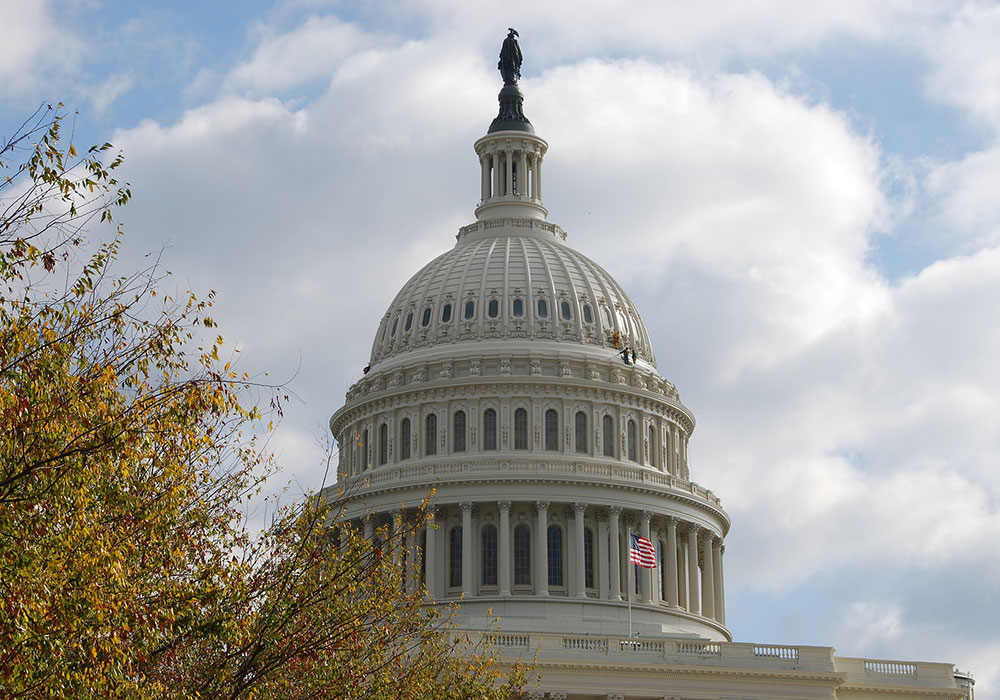Driven by evidence-based practice and patient-centered care, nurses have earned the faith of the American public. For two decades, nurses have been ranked the most trusted and ethical profession in the United States. Although trust is critical, what it lacks is support for the profession through federal investment in research, education, and workforce issues for long-term stability.
The nursing workforce is key to tackling the problems our healthcare system faces. Yet to harness the power of the nursing profession, the optimum conditions must first be established, uniting nurses in fulfilling their potential. While there are great challenges ahead in relation to staffing levels, this is an exciting time for nursing.
COVID-19 is changing that. As society became even more dependent on its frontline healthcare workers like nurses, several bipartisan bills were signed into law under both the Trump and Biden-Harris administrations that have substantial components dedicated to nursing development.
Big Bills Are Boosting the Profession
The Coronavirus Aid, Relief, and Economic Security (CARES) Act was signed into law on March 27, 2020, generating an unprecedented investment in health care. Sections of the CARES Act include opportunities to bolster supply chains for personal protective equipment, public health, and research for federal health agencies, including the National Institutes of Health, Centers for Disease Control and Prevention, and U.S. Food and Drug Administration.
Subsequent legislation added to that commitment, focusing the national priorities on finding better mechanisms to deliver quality health care, prevention, and treatment, leading to the Biden-Harris administration’s Build Back Better Act in November 2021. The act’s framework includes some of the largest funding programs have received in years—or ever:
- Transformative investments in children and caregiving
- Unprecedented efforts to combat climate change
- Wide expansion of affordable healthcare coverage
- Significant steps to bring down costs and strengthen the middle class
Although any investment in health care supports nurses, the act also has specific sections to help build the nursing workforce, the details of which are contained in the individual plans from the act’s three U.S. House of Representatives oversight committees:
- The Education and Labor Committee explained plans to “fund strategies to recruit and retain direct care workers, including raising wages and creating training opportunities to help address the direct care workforce shortage.”
- The Ways and Means Committee would “expand the Health Profession Opportunity Grant Program to provide grants in all 50 states for training local, low-income workers for high-demand jobs.”
- The Energy and Commerce Committee earmarked more than $9.5 billion “to establish or expand schools of medicine and nursing in underserved areas; to expand capacity for training the next generation of primary healthcare providers, including in palliative care; and to provide additional support for mental and behavioral health needs.”
Additionally, Congress introduced its own legislation, which both U.S. chambers supported in October 2021: the Senate approved the Dr. Lorna Breen Healthcare Provider Protection Act (S. 610), and the House Energy and Commerce Health Subcommittee marked up the companion bill (H.R. 1667). Specifically, the bill invests in healthcare providers’ mental health awareness through grants and educational funding for suicide prevention, well-being, and healthy behaviors for those in clinical practice. It also authorizes the Centers for Disease Control and Prevention to “conduct a campaign to encourage healthcare providers to seek support and treatment for mental and behavioral health concerns.”
For more than a decade, the nursing advocacy community—including ONS’s leading voice—has pushed for funding nursing workforce and development. Advocacy is a process, but the tangible results of that effort include the Title VIII programs at Health Resources and Services Administration, which has provided loans, scholarships, and programmatic support to more than half a million nursing students and professionals. That funding includes the Advanced Education Nursing, Workforce Diversity, Nurse Education and Practice, National Nurse Service Corps, Nurse Faculty Loan, and Comprehensive Geriatric Education grants.
Such sweeping bipartisan legislation is achieved through congressional champions like U.S. Representatives Dave Joyce (R-OH) and Suzanne Bonamici (D-OR), who have rallied Congressional leaders to support joint resolutions and legislation for nursing workforce and development programs that increase diversity, education, practice, quality, and retention. They understand the need because of the activism of nurses like you who share their stories with elected officials and advocate for change.
ONS Perspective
With its many coalition partners in the nursing community, ONS dynamically advocates to advance the nurse’s professional equity. Bringing that agenda to the highest levels of government requires leveraging the expertise of the ONS Board of Directors, ONS chapters, and each individual ONS member. To learn more about that work and how you can advocate for your profession and your patients, visit ONS’s website.






